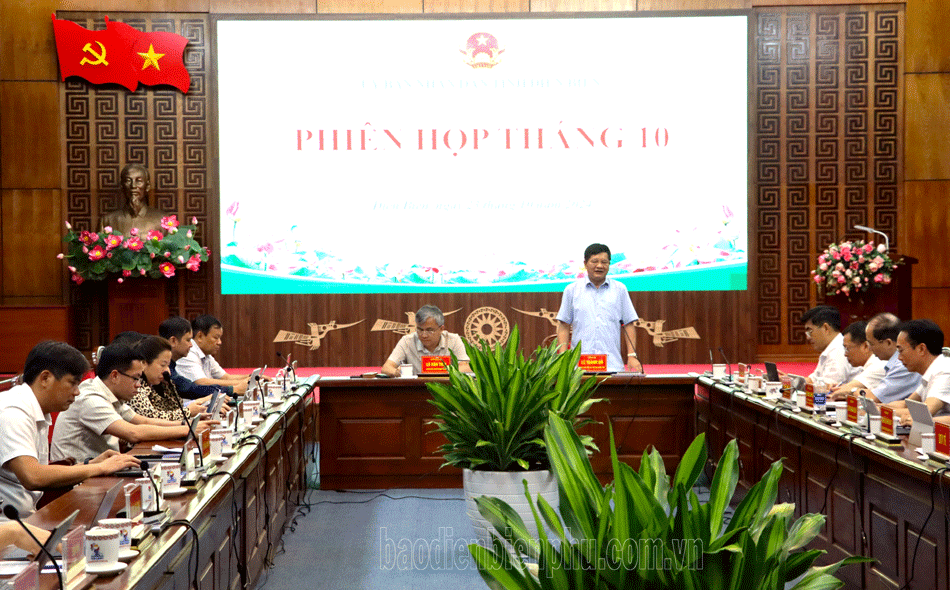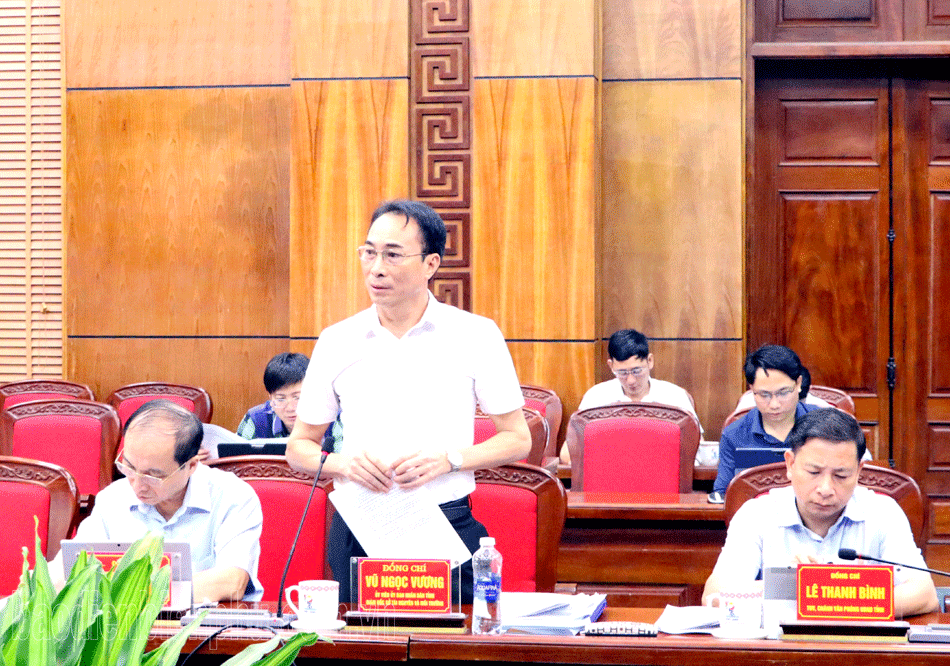Two significant proposals, presented by the Department of Natural Resources and Environment, took centre stage, with officials focusing on land allocation limits and compensation frameworks for when the State reclaims land.

Lê Thành Đô, Deputy Secretary of the provincial Party Committee and Chairman of the provincial People's Committee, speaking at the meeting.
The draft regulations, comprising three chapters and seventeen articles, lay out comprehensive guidelines on land allocation limits, land leasing, residential land recognition, and conditions for splitting or merging land plots across the province.
These provisions stem from the recently enacted 2024 Land Law and address a variety of scenarios, from agricultural land transfers to minimum plot size requirements.
Local representatives zeroed in on several persistent issues within their districts and municipalities, including challenges in allocating land and issuing land use certificates. Concerns were raised about land allocation for ethnic minority communities, agricultural land limits for households, and the minimal allowable size for plot separations.
The meeting also delved into a second proposal, outlining compensation, support, and resettlement regulations when the State reclaims land in Điện Biên.
Built on the foundations of the 2024 Land Law and the Government’s Decree No. 88/2024/ND-CP, this 22 article regulation tackles key issues such as compensation for residential and agricultural land that becomes uninhabitable or uncultivable after reclamation.

The leadership of the Department of Natural Resources and Environment presents the proposals at the meeting.
Officials also discussed damage compensation for structures on reclaimed land and the intricacies of cases where land use rights are restricted but the purpose remains unchanged.
Chairman Đô urged the Department of Natural Resources and Environment to review and adjust land use limits, especially for cases predating 1980.
He stressed the importance of tailoring regulations to specific land types such as perennial crops, production land, and protective forest areas across different regions.
On resettlement and compensation, the chairman emphasised the need for practical solutions for those whose remaining land is inadequate for living or farming, as well as clearer guidelines on compensation for restricted land use.
.gif)
The Department of Construction leadership offers opinion at the session.
To keep the process on track, the department was tasked with finalising these proposals for submission to the Provincial People's Committee by October 25.
In addition to these main agenda items, eight other proposals, covering areas such as construction, finance, and social welfare, were circulated for review and feedback from committee members.




.jpg)

.jpg)
.jpg)
.jpg)
.jpg)

.jpg)
.jpg)
.jpg)
.jpg)
.jpg)

.jpg)
.jpg)


You have 500/500 characters left
Please enter 5 or more characters!!!